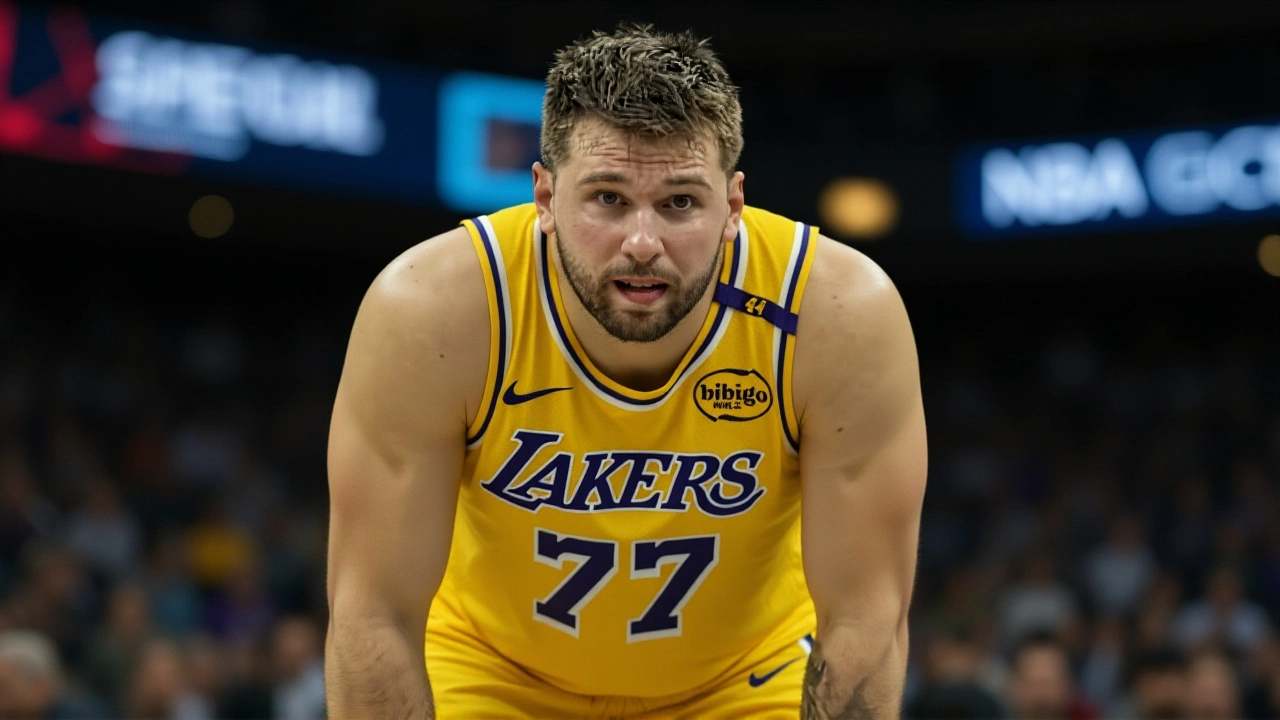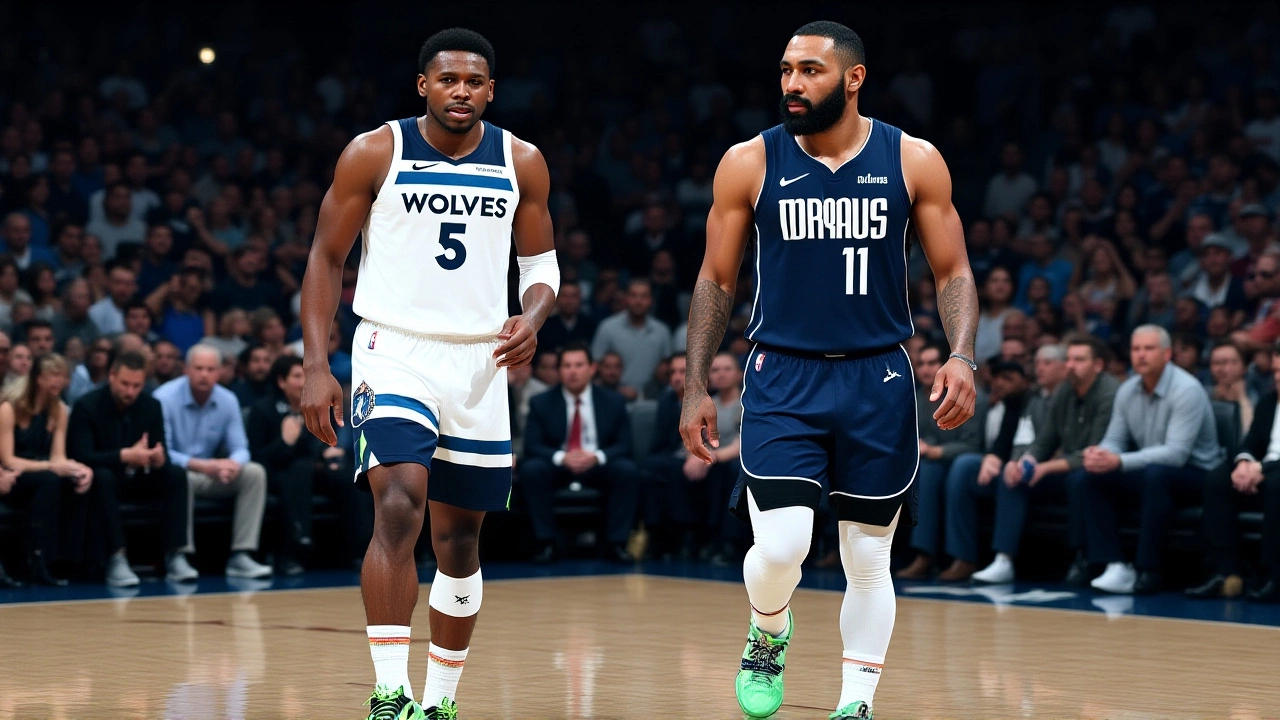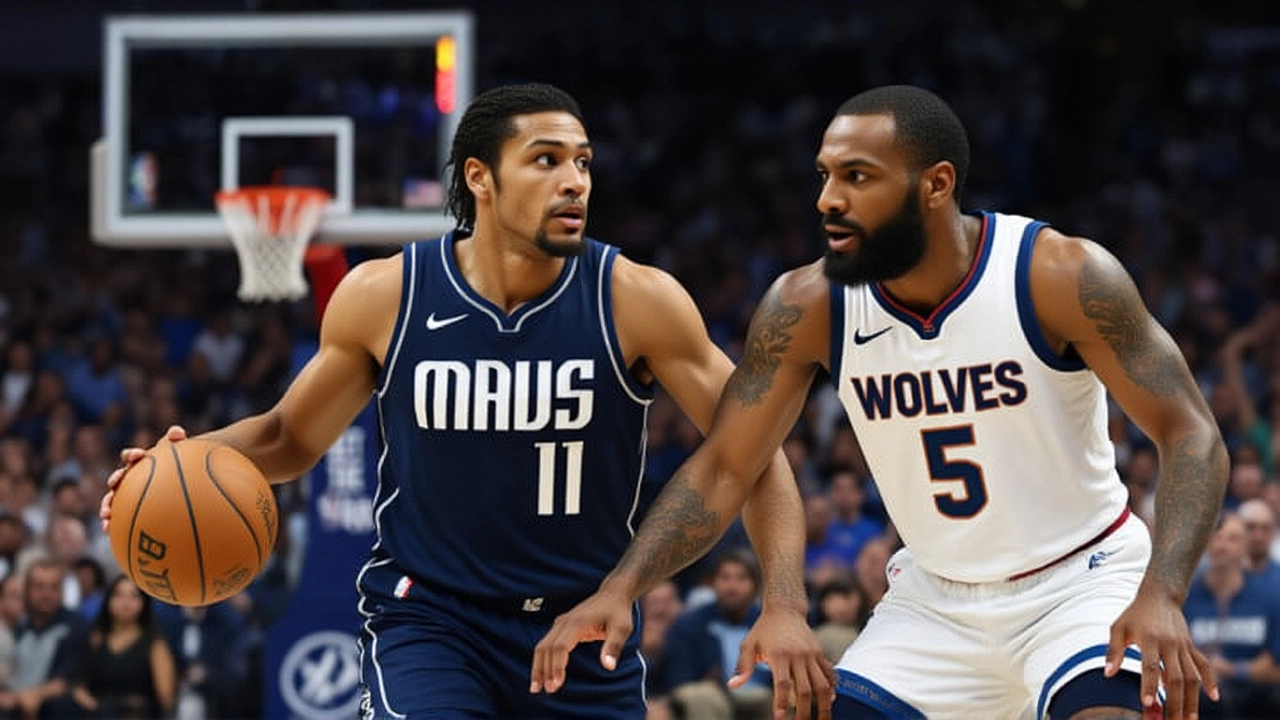The Oklahoma City Thunder didn’t just beat the Minnesota Timberwolves — they erased them. On Wednesday, May 28, 2025, at the Paycom Center in Oklahoma City, the Thunder closed out the Western Conference Finals with a 124-94 demolition in Game 5, sealing a 4-1 series victory and punching their ticket to the 2025 NBA Finals against the Indiana Pacers. The win wasn’t just dominant — it was historic. Shai Gilgeous-Alexander, the series MVP, dropped 34 points with surgical precision, while Chet Holmgren added 22 and Jalen Williams chipped in 19 before the starters sat with over seven minutes left in the fourth. The Thunder, who finished the regular season with a league-best 68-14 record, now carry an 8-1 home playoff record into the Finals — and a 18-2 mark after any loss this season, tying the 1986-87 Los Angeles Lakers for the best such percentage in NBA history.
From Punch in the Mouth to Total Domination
Just four days earlier, this same Thunder team looked vulnerable. In Game 3 at the Target Center in Minneapolis, they lost 143-101 — a gut-punch that Shai Gilgeous-Alexander later described as getting "punched in the mouth." He went 4-of-13 from the floor, committed four turnovers, and took only four free throws after averaging nearly 15 in the previous two home games. "You get punched, you get back up," he said. "We’ve got a decision to make." They made it. The Thunder responded with three straight wins, tightening their defense, sharpening their ball movement, and turning their physicality into a weapon. In Game 5, they held the Timberwolves to 41.2% shooting and forced just 12 turnovers — a number that might seem low, but it was the result of disciplined, intelligent defense, not passivity.
Timberwolves’ Future in Question
For the Timberwolves, the loss isn’t just about falling short — it’s about uncertainty. Their core, led by Anthony Edwards and Julius Randle, showed flashes of brilliance, but Randle (24 points) and key role players like Naz Reid and Nickeil Alexander-Walker are all free agents this summer. Head coach Christopher Jacob Finch offered a polite but telling assessment after the game: "We were more aggressive everywhere. We were a little cleaner around him. Didn’t foul. Our competitiveness was at an all-time high." The subtext? They gave everything they had — and it still wasn’t enough. With no clear path to upgrade their roster and a front office facing tough financial decisions, Minnesota’s window may be closing faster than anyone expected.

The Unspoken Problem: Nobody Was Watching
Here’s the twist no one talks about: no one seemed to care. Despite the Thunder’s historic season and the Timberwolves’ emotional playoff run, multiple outlets, including Sports Illustrated, reported the 2025 Western Conference Finals was "failing to live up to the standard the Mavericks set." The reference? The 2024 Dallas Mavericks’ run, which drew massive ratings and buzz — even as a lower seed. The 2025 series? Quiet. No viral moments. No breakout stars. No late-game drama. The Thunder’s dominance, ironically, may have hurt its appeal. Fans crave tension, not inevitability. The Game 3 blowout loss in Minneapolis was the only real drama — and even that didn’t translate into sustained viewership. The NBA’s marketing machine didn’t help. No national commercials. No late-night talk show appearances. Just a very good team playing very well, in a market that doesn’t always capture the national imagination.
What Comes Next: Thunder vs. Pacers
The Indiana Pacers — the 50-32 regular season team with the most improbable playoff run in NBA history — now stand in the way. They’ve pulled off five 15-point comebacks in these playoffs, including a last-second Tyrese Haliburton jumper to win Game 1 of the Finals 111-110. They play with heart, speed, and a system that confounds bigger, slower teams. But the Thunder? They’re built differently. Their defense ranks first in the league. Their bench outscored opponents by 12.7 points per 100 possessions. And Shai Gilgeous-Alexander? He’s playing like a man who’s been waiting his whole career for this moment. The Finals begin Thursday, June 5, 2025, at 8:30 p.m. UTC-5 on ABC. The question isn’t whether the Thunder will win — it’s whether anyone will still be watching when they do.

Behind the Numbers: A Team Built for This Moment
Let’s break down what made this Thunder team special. They won 68 games — the most in the league — and lost only 14. After every loss, they won 18 of 20 games. In the playoffs, they swept the Memphis Grizzlies 4-0, then took down the defending champion Denver Nuggets in seven games, closing out Game 7 with a 30-point rout. Their defense allowed just 105.2 points per 100 possessions in the postseason — the best in the league. And their offense? Efficient, balanced, unselfish. No player averaged more than 24 points, yet seven players averaged double figures in the playoffs. That’s not luck. That’s structure. That’s Mark Daigneault’s system in action. After Game 3, he said: "They were throwing the first punch. We were never able to give ourselves any traction." But they found it — and they never let go.
Frequently Asked Questions
Why was the 2025 Western Conference Finals considered a ratings disappointment?
Despite the Thunder’s dominance and the Timberwolves’ emotional playoff run, the series lacked the narrative tension and star power that drive viewership. Unlike the 2024 Mavericks’ run, which featured dramatic comebacks and a charismatic core, the 2025 series was seen as predictable. Media outlets like Sports Illustrated noted "no one seems too interested," and without breakout moments or national media push, ratings lagged behind expectations — even though both teams had strong records.
How did Shai Gilgeous-Alexander bounce back after Game 3’s poor performance?
After going 4-of-13 with four turnovers and only four free throw attempts in Game 3, Gilgeous-Alexander adjusted his approach: he attacked the rim more, trusted his teammates, and let the defense come to him. In Games 4 and 5, he averaged 31.5 points on 52% shooting and drew 11 free throws per game. His leadership shifted from scorer to orchestrator, and the Thunder’s offense became more fluid — a key reason they outscored Minnesota by 15 points per 100 possessions in the final three games.
What’s at stake for the Minnesota Timberwolves this offseason?
Julius Randle, Naz Reid, and Nickeil Alexander-Walker are all unrestricted free agents, and the Timberwolves face tough decisions. With a cap crunch and no clear path to add elite talent, they risk losing key contributors without a championship window to show for it. Anthony Edwards is under contract, but without upgrades around him, Minnesota may struggle to replicate this level of success — especially with the Thunder now firmly entrenched as the West’s top team.
How does Oklahoma City’s 18-2 record after losses compare historically?
The Thunder’s 18-2 mark after a loss this season ties the 1986-87 Los Angeles Lakers for the best winning percentage (.900) in NBA history following a defeat. Only two other teams in the past 40 years have won 17 or more games after a loss while losing fewer than three — the 2015-16 Warriors and 2016-17 Cavaliers. It speaks to the team’s resilience, coaching, and mental toughness — traits that could be decisive in a long Finals series.
What makes the Pacers a dangerous Finals opponent despite being underdogs?
The Pacers have set an NBA record with five 15-point playoff comebacks, including a last-second win in Game 1 of the Finals. Tyrese Haliburton’s playmaking, pace, and clutch shooting make them uniquely dangerous against slower, more physical teams. While the Thunder are deeper and more athletic, Indiana’s ability to stretch defenses and force turnovers could disrupt Oklahoma City’s rhythm — especially if they get hot from three-point range early.
Will the Thunder’s lack of national attention hurt their Finals chances?
Not on the court — but it might off it. The Thunder’s quiet dominance has drawn little media hype, meaning less exposure for players like Holmgren and Williams as future stars. That could affect endorsement deals and long-term marketability. Still, for a team built on culture over charisma, the lack of spotlight may actually help. They’ve proven they don’t need noise to win — and in the Finals, that focus could be their greatest advantage.
